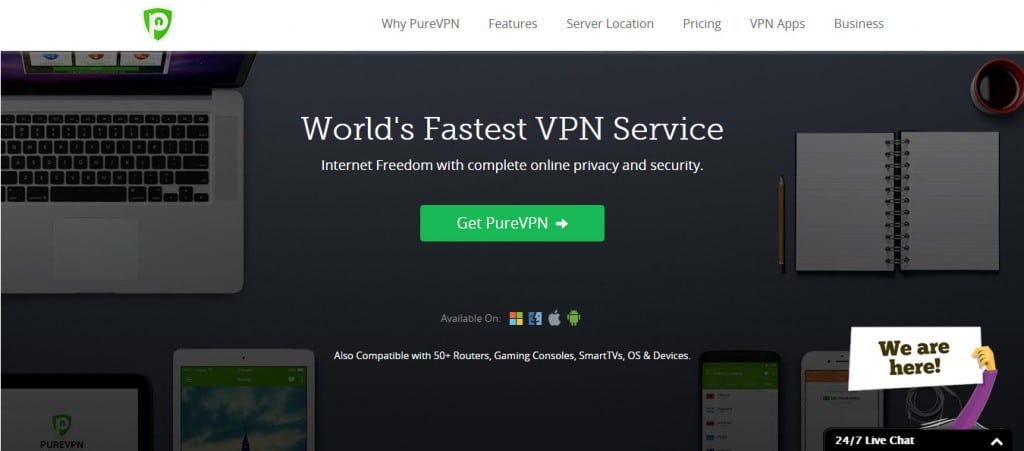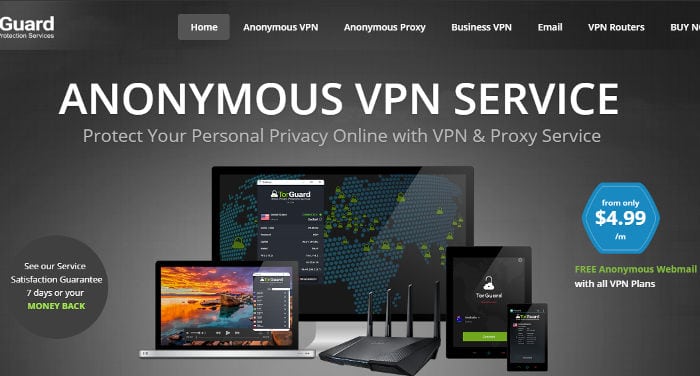
Security online is one of the things that we should start to keep in mind, especially when we are traveling or moving to another country. Another thing that we should keep in mind is whether access to the Internet is restricted or not.
In Vietnam, there exist multiple cybernetic laws which are theoretically aimed at preventing information leaks, promoting security in the interchange of information, and permitting secure transactions. However, these laws have mainly been used to block, filter or monitor the use of the Internet in the country. Many websites in Vietnam are blocked or have restricted use, including sites as popular as Facebook, Twitter, Blogger, the BBC, and WordPress, following the lead of countries such as China.
Despite this, recent reports indicate that Vietnam is among the countries with the highest risk in the world for cybernetic attacks along with Thailand.
How can I access Facebook, Twitter, Blogger and other blocked websites in Vietnam?
To improve security online and to avoid potential restrictions on access to certain websites, one of the most useful tools is the use of Virtual Private Networks (VPNs), as you will see in the following sections.
What is a VPN?
On the Internet, all systems, meaning any telephone or computer connected to the Internet, has an IP address assigned to it (Internet Protocol Address). This IP address identifies the device and its geographic location. In addition, when we access the Internet, we use the infrastructure of an Internet service provider, which may be a private company or governmental body. This means that Internet service providers (or even third parties) can monitor your browsing activity, identify you, and even block your access to certain types of content.
VPNs are a type of software that assigns you a virtual IP address which is different from your normal address as well as encrypts the information that you share when you access the Internet. This way, they protect your identity and prevent third parties from spying on your Internet use.
The virtual IP address assigned by the VPN can belong to any location where the VPN provider has a server. Therefore, in addition to being secure, your connection appears to originate from a place different from where you are actually connecting.
Why do I need a VPN in Vietnam?
Vietnam is a country with very strict Internet laws that are particularly directed at controlling the population. Nonetheless, cases of computer hacking and the propagation of malware have increased greatly in the past years. The blocking of social networks is also a recurring issue along with the subject of privacy. Therefore, using a VPN can be useful for:
- Getting around the blocking of webpages: VPNs provide an additional layer of protection between the Internet service provider and the user, getting around blocking, censorship, and filtering, all the while ensuring your anonymity. This will allow you to access websites that are completely or partially blocked, such as Facebook, Twitter, Blogger, and WordPress, among others.
- Secure browsing: This means that a VPN will protect you from hacker attacks or malware. The encryption protocol used by VPNs encrypts the information that you share online, prohibiting the potential filtering of this information and preventing it from being monitored or copied by third parties.
- Unlocking geographically restricted content: Many websites only offer their content to users who connect from a specific geographical location. This is very common among websites that offer audiovisual content. A clear example of this is national television stations, Netflix, and Hulu. Because of the fact that VPNs allow you to hide your real IP address, displaying an IP address from another geographic location instead, the website that you are connecting to will think that you are connecting from another country and will, therefore, allow you to access the restricted content.
Comparison of the Best VPNs for Vietnam
[Limited-Time Discount Offer] We are now offering an exclusive discount for ExpressVPN: if you buy ExpressVPN’s yearly package, you’ll get 3 months for free and only pay 6.67 USD per month. This offer is limited, so you had better take advantage of it right now by clicking on this link and then clicking on the “Get ExpressVPN” button!
| Features |  |  |  |  | What’s the Best? |
|---|---|---|---|---|---|
| Main Advantage | Fastest and Easiest to Use | ||||
| Money Back Guarantee | 30 days | ||||
| Monthly Plan | 12.95 USD | ||||
| Yearly Plan | 6.67 USD/month(exclusive offer: 3 months free) | ||||
| Support | 24/7/365(Best service in our experience) | ||||
| Server Count | 3,000+ | ||||
| Countries with Servers | 94 | ||||
| Payment Methods | Credit Card, Paypal, Bitcoin, Alipay, Union Pay and others | ||||
| Desktop Apps | Windows, Mac, Linux, Chromebook | ||||
| Browser Extension | Chrome, Firefox, Safari | ||||
| Mobile Apps | Android, iOS, Windows Phone | ||||
| Simultaneous Connections | Yes (until 5) | ||||
| Encryption Protocols | OpenVPN, L2TP-IPsec, IPsec, IKEv2, PPTP | ||||
| Languages Supported | 16 | Try ExpressVPN➤ |
Is it safe to connect to the Internet in Vietnam?
As we mentioned above, Vietnam is one of the countries with the highest risk of cybernetic attacks in the world. The main attacks that take place are phishing, spear phishing, and cookie sniffing; in other words, attacks that mainly take place on social networks with the goal of robbing the user’s private information. Information such as debit and credit card details, bank transactions, or online banking should be highly protected because of this.
Basically, the goal of these attacks is to introduce malware, modify the appearance of websites or send emails, for the purpose of collecting sensitive information such as banking information, usernames, and passwords. The people who are most vulnerable to these attacks are normal people with little knowledge of technical vulnerabilities, who make easy targets.
In Vietnam, the fight against this type of crime is still lacking, which means that connecting to the Internet in this country can potentially be dangerous.
What websites are blocked in Vietnam?
In Vietnam, cybernetic laws are very strict and because of this, its Internet freedom index is assessed as being not free.
In addition, restrictions on Internet use are numerous, with the complete or partial blocking of a large number of websites.
Partially-blocked websites
The majority of social networks, whether local or international, have some type of filtering or partial blocking. The most typical example is Facebook, which is inaccessible in certain areas of the country, and which on various occasions during the past years has been blocked for more or less prolonged periods of time.
Completely-blocked websites
There are many websites that are inaccessible in Vietnam. Among these are the majority of websites that share content related to political opposition and various types of independent foreign media, as well as websites that share content on international organizations, human rights, and various blogs. The most relevant websites of the following:
Social networks and blogging platforms:
- Twitter (as of 2016)
- Blogger (as of 2016)
- WordPress (as of 2016)
Media:
- The British Broadcasting Corporation (BBC)
Websites related to human rights:
- www.interprivacy.com
- www.vnn-news.com
- www.vnra.net
- www.vnfa.com
- www.mhro.org
Photo Credits: Photo by Lukas Bieri on Pixabay




Hi Sborto ,
So what is the best vpn for Vietnam then? I have Astrill and I am not sure if it will work in Vietnam if I visit there. It works in other countries though so I am just going to hope for the best. Any possible options?
Astrill is not a bad option, but recently there have been many concerns about their service: their post-sale service is bad and many people complained that if you have any problem they are not so helpful and don’t give back the money. In my opinion Vypr and Express are better options. You can try them and then get the one you feel more comfortable with
Hi Charles, I used Astrill in Vietnam last December and it works well. Go for it.